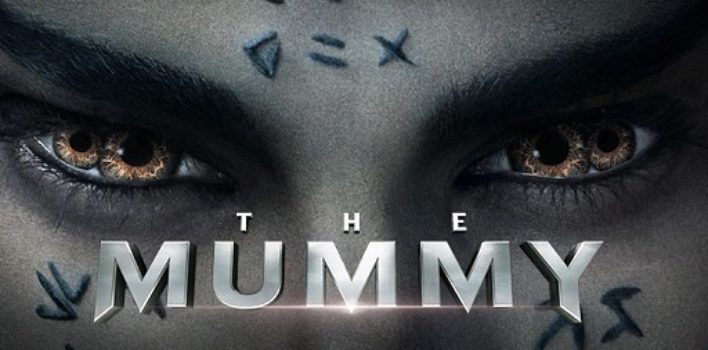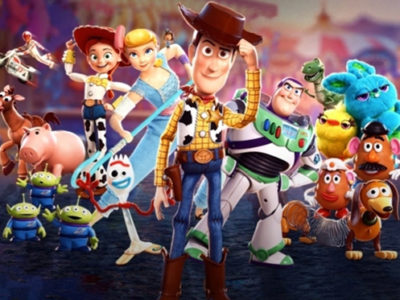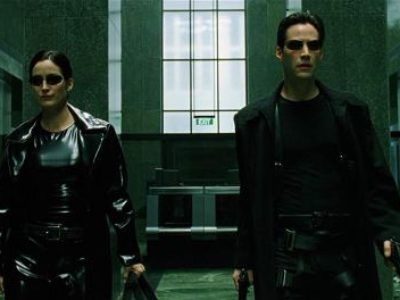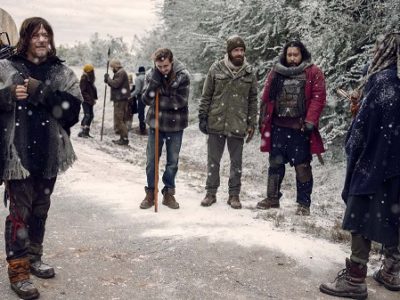Review| The Mummy
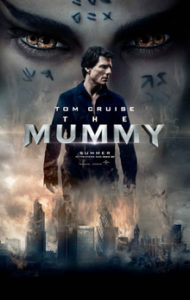 As the opening studio credits rolled for Alex Kurtzman’s The Mummy, and the Universal Studios logo spun 180° to change into the “Dark Universe” logo, I must admit I got the chills. I’ve been excited about Universal’s attempt to reinvigorate the classic film monsters, being a fan of the genre myself. There are already plans in place for The Bride of Frankenstein, The Invisible Man, Dracula, and many more. The bar is indeed set high, as many of these films hold a special place in cinematic history. These remakes will need to simultaneously feed off the viewers’ built-in nostalgia and/or preference for monster flicks, while also making them forget about the past and buy into this new universe. For all its ambition, The Mummy is mostly hit or miss in this regard.
As the opening studio credits rolled for Alex Kurtzman’s The Mummy, and the Universal Studios logo spun 180° to change into the “Dark Universe” logo, I must admit I got the chills. I’ve been excited about Universal’s attempt to reinvigorate the classic film monsters, being a fan of the genre myself. There are already plans in place for The Bride of Frankenstein, The Invisible Man, Dracula, and many more. The bar is indeed set high, as many of these films hold a special place in cinematic history. These remakes will need to simultaneously feed off the viewers’ built-in nostalgia and/or preference for monster flicks, while also making them forget about the past and buy into this new universe. For all its ambition, The Mummy is mostly hit or miss in this regard.
Nick Morton (Tom Cruise) is a treasure-seeking military man armed with a nondescript map and hopes for riches. Unfortunately this venture results in the US Air Force blowing a medium-sized crater in a small desert village. Because who cares about the body count if as we can see Tom Cruise dodging explosions? His recklessness actually uncovers an ancient Egyptian tomb far enough away from home to draw the curiosity of Jenny Halsey (Annabelle Wallis), Nick’s love(?) interest in the film. Nick’s antics continue as he releases the tomb from its bonds, effectively liberating an ancient evil that has been storing up wrath for millennia. The Egyptian princess Ahmanet (Sofia Boutella), once next in line for the throne, was stopped in the process of bringing the Egyptian god Set to life in a mortal body and bringing never-ending war and chaos to the world. Having enslaved herself to evil, she could not be allowed to live much less be buried in Egyptian lands. One has to wonder why such evil was not just burned out of existence in the first place rather than burying it in a tomb at the risk of being unearthed one day, but I digress.
 For those that believe a film is only as good as it’s characters, you have to be a bit let down by this film. The overall picture is predicated on the prospect of Nick caring for someone or something other than himself. His introduction, and most of the following scenes, are designed to show us his selfishness and self-centeredness. Even his interactions with Jenny were hollow attempts at romance just to retrieve a map. We begin think perhaps that he is showing his true colors when he saves Jenny on the airplane rather than himself, but as he readily admits later, he thought there was another parachute. So, where is the change? Where is the moment of reflection for Nick when he realizes that he is not the center of the universe? Why should the audience believe that he wouldn’t warm up to the idea of being supremely powerful as he’s embodied with a deity? This is ultimately the major downfall of the film; the main character’s arc is unearned and feels almost unlikely if it weren’t for it being pure evil he was tempted with. Because a selfish individual seeking treasure would never succumb to pure evil… right?
For those that believe a film is only as good as it’s characters, you have to be a bit let down by this film. The overall picture is predicated on the prospect of Nick caring for someone or something other than himself. His introduction, and most of the following scenes, are designed to show us his selfishness and self-centeredness. Even his interactions with Jenny were hollow attempts at romance just to retrieve a map. We begin think perhaps that he is showing his true colors when he saves Jenny on the airplane rather than himself, but as he readily admits later, he thought there was another parachute. So, where is the change? Where is the moment of reflection for Nick when he realizes that he is not the center of the universe? Why should the audience believe that he wouldn’t warm up to the idea of being supremely powerful as he’s embodied with a deity? This is ultimately the major downfall of the film; the main character’s arc is unearned and feels almost unlikely if it weren’t for it being pure evil he was tempted with. Because a selfish individual seeking treasure would never succumb to pure evil… right?
This is an interesting point of analysis for the film. At one point Dr. Jekyll (yes, that Jekyll, played by Russell Crowe) describes Ahmanet in much the same way as scripture describes Satan. Prowling around, waiting for their prey (1 Pet. 5:8). What we see from Ahmanet however is more of a drawing in of Nick. A calling to him which he cannot resist. This makes me wonder how much prowling (seeking) that Satan really has to do to capture us. How much of the sins we fall into are things that are usually present that we simply give in to? Peter describes him as a roaring lion. We often associate that roaring with a factor of intimidation. Maybe we should start looking at it as more of a sirens call, drawing us in with promises of power, or pleasure, or wealth. Ahmanet’s promise to Nick was for immortality. It seems fitting that what we stand to lose, if we succumb, is life eternal.
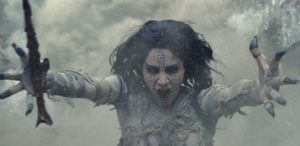 Let me add an additional note about Sofia Boutella. Ahmanet is the embodiment of evil in the film while also serving as a temptress to Nick. Boutella excels in this role of being sultry and seductive at one time, and horrific at another. While the backstory for her character isn’t quite as strong as that of Imhotep’s in Stephen Sommers’ The Mummy (1999), Boutella personifies this evil trying to claw its way into the world. For her, that’s great. For the film, I’m sure the creators are wishing for more excitement for upcoming films in the Dark Universe, or praise for the hero of the film than for its villain. Be that as it may, Boutella is hands down the best things this film has going for it.
Let me add an additional note about Sofia Boutella. Ahmanet is the embodiment of evil in the film while also serving as a temptress to Nick. Boutella excels in this role of being sultry and seductive at one time, and horrific at another. While the backstory for her character isn’t quite as strong as that of Imhotep’s in Stephen Sommers’ The Mummy (1999), Boutella personifies this evil trying to claw its way into the world. For her, that’s great. For the film, I’m sure the creators are wishing for more excitement for upcoming films in the Dark Universe, or praise for the hero of the film than for its villain. Be that as it may, Boutella is hands down the best things this film has going for it.
And what else does it have going for it? Well, at least a little bit. Cruise remains as a scarred but still kicking supernatural being of some kind. It appears he has the powers, or at least the strength, of the Mummy but he’s fighting within himself and figuring out what he is. You might say his humanity has been stained by evil, which has the potential to open up some great dialogue and introspection in future films. And if I  thought the studio were more interested in capturing the nature of humanity in dealing with monstrous conditions, it might have me excited for that potential. But alas, they’ve proven with the writers and directors lined up for future films, and with this film as a finished product, that they’re really more interested in the action and affects than with the depth. Russell Crowe also remains as Jekyll/Hyde. We do get to see that transformation in this film, which fits neatly into the category of leaving a lot to be desired. As a stand-alone film this qualifies for me as “pretty good” with a lot of clear missing pieces. As a starter for the Dark Universe, I hope the rest of the films see this as a bar to clear, rather than one to meet.
thought the studio were more interested in capturing the nature of humanity in dealing with monstrous conditions, it might have me excited for that potential. But alas, they’ve proven with the writers and directors lined up for future films, and with this film as a finished product, that they’re really more interested in the action and affects than with the depth. Russell Crowe also remains as Jekyll/Hyde. We do get to see that transformation in this film, which fits neatly into the category of leaving a lot to be desired. As a stand-alone film this qualifies for me as “pretty good” with a lot of clear missing pieces. As a starter for the Dark Universe, I hope the rest of the films see this as a bar to clear, rather than one to meet.


